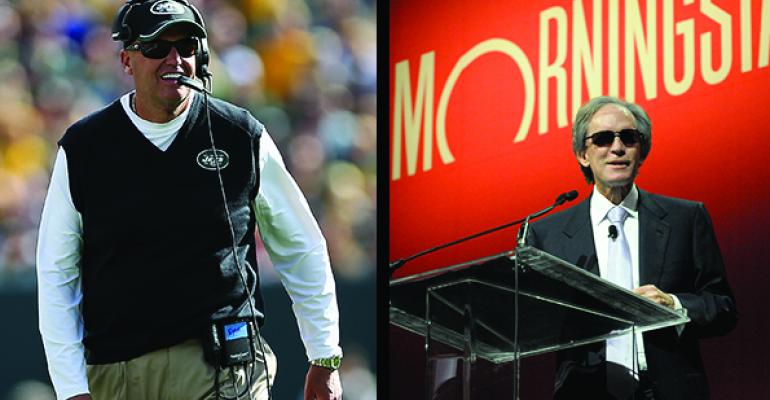
You probably wouldn’t think NFL coaches and portfolio managers have much in common, but MarketWatch contends that both are high-profile, high-testosterone positions, they are both worth millions and are ofen the target of intense criticism. The article compares New England Patriots’ coach Bill Belichick with Steven. A Cohen, as both have had great success and a willingness to bend, but not entirely break, the rules. There also comparisons of Rex Ryan to Bill Gross, Pete Carroll to Bill Ackman, Chip Kelly to high-frequency traders and Mike McCarthy to managers who exhibit extreme aversioin to risk aversion, especially after his disastrous game against the Seattle Seahawks during the NFC Championship game.

Tax season officially kicked off last week, and Money.com is offering seven tips to help clients protect their identity during the filing process. Suggestions include being wary of unexpected emails or phone calls claiming to be the IRS and making sure you file on a secure network.

American baby boomers aren't the only ones struggling to save enough money to be comfortable later in life, according to a new HSBC study. Nearly 70 percent of all working-age people are worried about running out of money in retirement, and two-thirds are concerned about not about having enough to live day-to-day. Worldwide, there, are 868 million people over the age of 60, according to the study, and 85 percent of them have other fiscal priorities than saving for retirement, such as paying off a mortgage or other debts.

The $2 trillion ETF market is exploding, and experts are forecasting that it will grow to $5 trillion in assets by 2020, according to a PricewaterhouseCooper study. To compare, mutual funds hold about $13.3 trillion in assets.

Despite all your best efforts, your retired clients may be spending too much to not outlive their money. While the typical rule-of-thumb is to withdrawal 4 percent of assets a year in retirement, 70 percent of those between 60 and 75 never heard of that guideline, while 16 percent think that 6 to 8 percent is a safe rate. According to Morningstar's Christine Benz, getting clients to stay within a sustainable spending rate is paramount to their financial health and quality of life.




